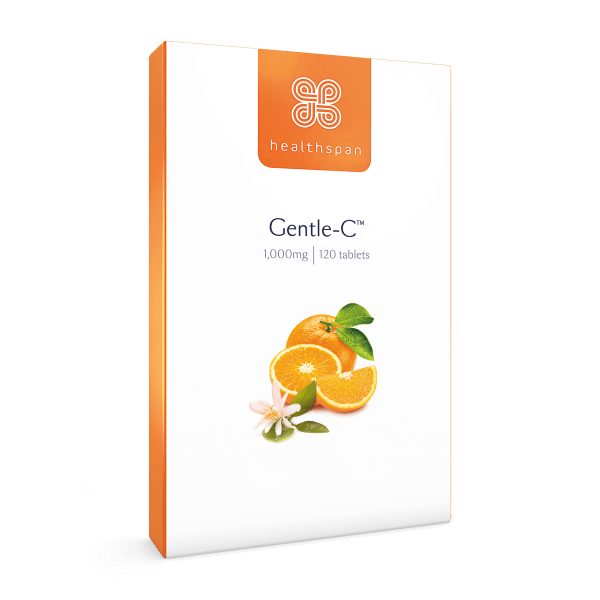Vitamin C is vital for immunity, as well as maintaining healthy, youthful skin – but are you getting enough?
Vitamin C, also known as ascorbic acid, can't be stored in the body so must be obtained from the diet. Food sources include most fruit and vegetables, especially lemons, limes, oranges and other citrus fruit, berries, blackcurrants, capsicum peppers, kiwi fruit and green leafy vegetables – an excellent reason to aim for your five-a-day.
What can it help?
Vitamin C is an antioxidant that is also vital for collagen production. It helps to maintain more youthful skin as you age and strengthens joint cartilage, as well as contributing to immunity, energy production and mood. Perhaps its best-known roles are boosting the uptake of iron and protecting against viral infections such as the common cold.
Colds
Vitamin C suppresses the activation of viral genes, helping to protect against colds. Studies of schoolchildren and students found that taking vitamin C reduced the risk of catching a cold by as much as 30 per cent.
In people with asthma, cold viruses are a well known trigger for attacks.One study showed that taking vitamin C supplements decreased the occurrence of respiratory infection-induced asthma attacks by as much as 78 per cent through its antiviral action and by reducing airway sensitivity.1
Exercise results
Vitamin C is used by athletes to reduce muscle soreness after exercise. One study assessed its effects on men performing aerobic exercise to the point of exhaustion before and after taking supplements for 30 days. The researchers found high vitamin C concentration was linked with increased physical performance and decreased oxidative stress.2
Gout
Needle-sharp uric acid crystals are deposited in joints and other tissues of people with gout – an excruciatingly painful form of arthritis. The results of 13 clinical trials show that taking vitamin C significantly lowers blood levels of uric acid, which could help prevent gout recurring.3
Skin ageing
When ultraviolet light strikes the skin, it sets up an inflammatory reaction that damages skin cells and can lead to skin becoming dry, inelastic and wrinkled with a leathery texture. The anti-inflammatory effects of vitamin C protect skin during UV exposure and stimulate the production of new collagen.
How much should I take?
A minimum daily intake of 10mg vitamin C is needed to prevent scurvy, a potentially fatal disease, and the Ministry of Health recommends a daily intake of 45mg.
Available forms: sustained release or effervescent tablets, non-acidic Ester-C, gummies and anti-ageing skin creams.
Perfect partners: zinc and vitamin D for immunity.
Watchpoints: doses above 1g a day may cause indigestion. Vitamin C may affect urine test kits for diabetes. Seek medical advice before taking vitamin C if you have haemochromatosis.

Gentle-C
High-strength vitamin C in a stomach-friendly formulation
- Immune health and joint support for sensitive stomachs
- 1,000mg vitamin C in a single daily tablet



